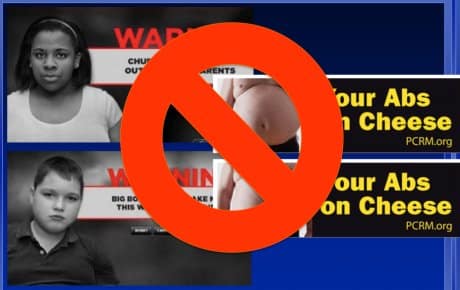
The Yale Rudd Center has made a series of videos about weight bias, and the nature and extent of this prejudice. At its mildest, weight bias can be described as a negative attitude toward obese people. It’s a form of stereotyping whose expression can be subtle or blatant, verbal or physical, and which can lead to stigmatization, rejection, and discrimination in many different areas of life.
Why is weight bias a public health issue? Because policy is aimed at putting an end to the childhood obesity epidemic, and anything that might impact that goal in a negative way ought not to be included in policy. If certain public service announcements and ad campaigns are adding to the problem, it really doesn’t matter how worthy their intentions are if the result is to worsen the situation.
In fact, evidence shows that the stigmatization that accompanies weight bias actually undermines public health efforts. Bias and stigma affect the policy decisions that are made, and not for the better. To top it all off, there does not seem to be enough awareness and discussion of weight bias in relation to public health policy.
Readers of Childhood Obesity News will remember the anti-obesity ad campaign in the state of Georgia a couple of years back. Bold and innovative but perhaps misguided, the collection of advertisements drew plenty of objection in blogs and online comments. Despite widespread suspicion that such efforts actually spread shame and promote stigmatization, the results had not really been looked into, and someone decided it was time to do a little assessment of obesity-related health campaigns.
One of the results is “Public Reactions to Obesity-Related Health Campaigns.”
From this short video, we learn that many obesity-abatement ads have the effect of shaming people who are overweight or obese, and this is counterproductive. For starters, being stigmatized is very stressful, both in the moment and in the way it piles up and weighs a person down even when nothing particularly traumatic is happening. And stress, as Dr. Pretlow has pointed out many times, is a condition that causes people to resort to a coping strategy they have learned will work for them in the short term — they eat excessive amounts at inappropriate times and in self-destructive ways.
Not surprisingly, once some professional scientists started asking scientifically-phrased questions, the Georgia campaign messages were rated the worst. This was measured in terms of stigmatizing effect, and low effectiveness as motivation, and a low level of intent to take the advice given in the messages.
(To be continued…)
Your responses and feedback are welcome!
Source: “Videos Exposing Weight Bias,” YaleRuddCenter.org
Source: “Public Reactions to Obesity-Related Health Campaigns,” YouTube
Image by Yale Rudd Center.

 FAQs and Media Requests:
FAQs and Media Requests: 











